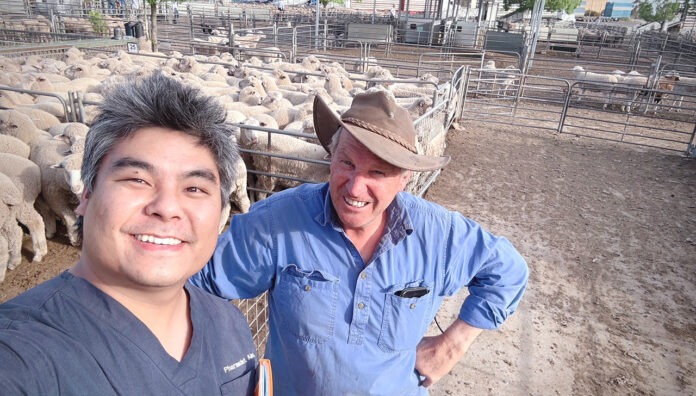A new pharmacist-led Q fever vaccination service is providing essential protection for farmers in Victoria.
Q fever cases are on the rise in Victoria. In 2024, there were 77 Q fever notifications – a significant uptick on cases compared to the previous 5 years.
The zoonotic disease – primarily carried by cattle, sheep, and goats – can cause significant long-term health impacts, including heart disease, bone and joint infections and vascular infections. Around 10–15% of people who have this develop chronic fatigue.
The Victorian Department of Health has urged people working with animals, animal products or animal waste to get vaccinated against the bacterium. But given it’s a multi-step process requiring a specific skill set, vaccination isn’t always readily accessible.
AP spoke with community pharmacist Alexander Look MPS, based in the rural town of Ouyen in north-west Victoria, who recognised a gap in care in his community and took action to address it.
Building a local solution
Ouyen is a key livestock-selling and transport centre, hosting fortnightly sheep sales with significant numbers of sheep and lambs traded each year. With no permanent local GP, Mr Look’s pharmacy became a vaccination hub, drawing frequent enquiries about Q fever vaccination.
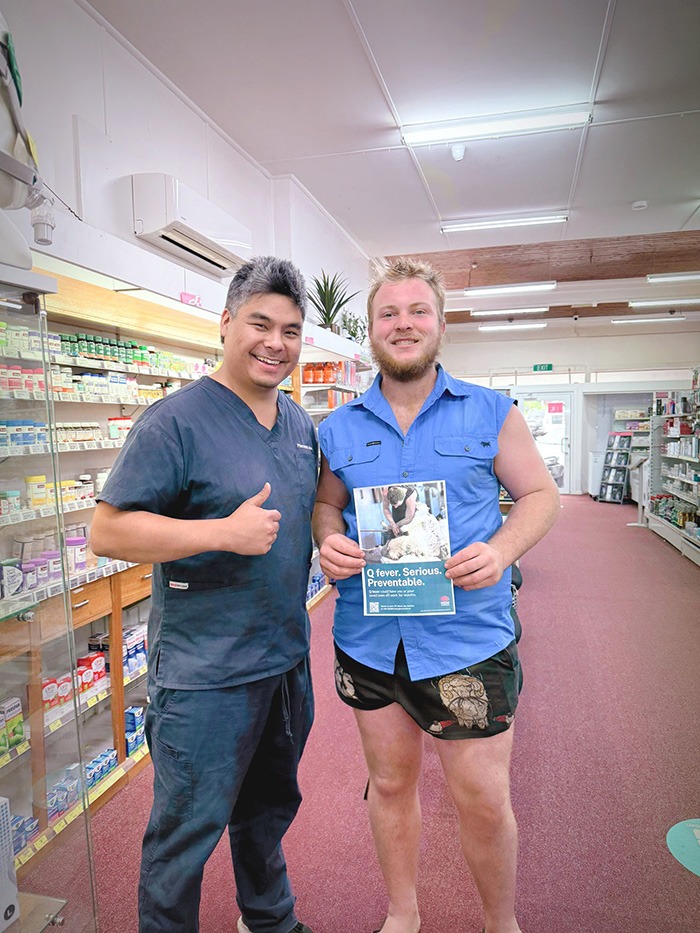
‘We were getting a lot of farmers [coming through] who were worrying about this particular vaccination,’ he said.
There are few providers, even in larger regional centres, that offer Q fever vaccination. There’s only one clinic in Mildura, the largest nearby town, providing the service
‘Farmers would have to drive several hours [for the service], and return on at least three occasions,’ Mr Look said.
Besides, the clinic is no longer taking on new patients. ‘So you can’t get in, even if you wanted to,’ he added.
Identifying a need for a local Q fever vaccination clinic, Mr Look first conducted research into the viability of the service to determine whether it would work from a business perspective. He then partnered with a GP from a clinic located 1 hour away from Ouyen to arrange for the service to be offered in town – making vaccination more accessible to those in need.
A lengthy assessment process
Before patients can be vaccinated against Q fever, they must undergo a three-stage assessment process, with the first being an interview to test suitability, Mr Look said.
‘This includes identifying whether they’ve had the vaccination or Q fever before,’ he said. ‘Because this is a once-in-a-lifetime vaccination, they are not suitable to be vaccinated if they have. And if someone has previously had Q fever, they are at risk of having a severe adverse reaction.’
The second step is to get a blood test, with the partnering GP issuing a pathology request to the patient. After that, a skin test is required.
‘I inject a small amount of bacteria underneath the skin, then I get the patient to return 7 days later – so we can review to make sure there’s not any skin reaction,’ Mr Look said. ‘Because if there is, they are not eligible for the vaccine.’
These intricacies prevent many clinics from offering the service, Mr Look said.
‘With the skin testing, you have to reconstitute the vial of bacteria,’ he said. ‘So it’s most efficient to [assess] 20 people or so to maximise the testing vial. And there isn’t usually that volume of people.’
Charging a little extra allows for ad hoc testing rather than batching, ensuring all patients are covered on demand. ‘Patients find it worthwhile, because it reduces the serious adverse effects of Q fever,’ Mr Look said.
Ensuring compliance
Q fever vaccination is within Victorian pharmacists’ scope of practice to administer, when prescribed by a GP. However, the clinical assessment was another story.
‘Both myself and the other pharmacist doing it had to undertake additional training from the Australian College of Rural and Remote Medicine, which has a pathway to train people on Q fever vaccination,’ Mr Look said.
The training involved an online, validated course that introduced a new skillset.
‘Pharmacists are comfortable with intramuscular vaccination, and to some degree subcutaneous vaccination,’ he said. ‘However, this testing involves intradermal administration of the bacteria, followed by a review with proper clinical replication.’
And just to ensure all was above board, the team consulted a lawyer.
‘We wanted to make sure that [the service] was compliant with a number of conditions,’ Mr Look added.
Extending the reach of rural health services
So far, the service has had a significant impact for clientele – both in time and cost saved, Mr Look said.
‘Taking time off from farming work is quite difficult,’ he said. ‘With each course of vaccination, we’re saving patients at least 6 hours of commuting time, and more in terms of waiting for the clinician when they get to the clinic to the larger cities.’
The key demographic the team is hoping to reach is younger farmers, including students just starting out in the industry.
‘They would most benefit from this type of protection because they are early on in their career,’ Mr Look said.
Around a dozen people have come through the clinic, with significant interest from other groups.
‘We are about to have further discussions with the Livestock Exchange involving [vaccination for] people who don’t live within our town, including livestock agents, because it’s so difficult to get – even in the cities,’ he said. ‘If they’re coming here once a month, this is a brand new service we can offer them.’
The team has also spoken with the local GP about offering the service more broadly across rural areas, including to abattoir workers.
At this stage, only Q fever vaccination is provided through the off-site clinic.
However, the team is checking the Australian Immunisation Register to determine whether patients are up to date with their tetanus vaccination.
‘Farmers are exposed to a lot of soils which might be contaminated,’ he said. ‘So when we’re looking at combining this service with other existing services, it certainly would be something like tetanus vaccination.’
Continued collaboration with the GP is an essential part of the service, which has helped to strengthen the team’s skills.
‘He’s deputised us to do a lot of the functions, including the skin test and assessment,’ Mr Look said. ‘And he’s confident with our skills, which is really reassuring for us to know we’re on the right track.’



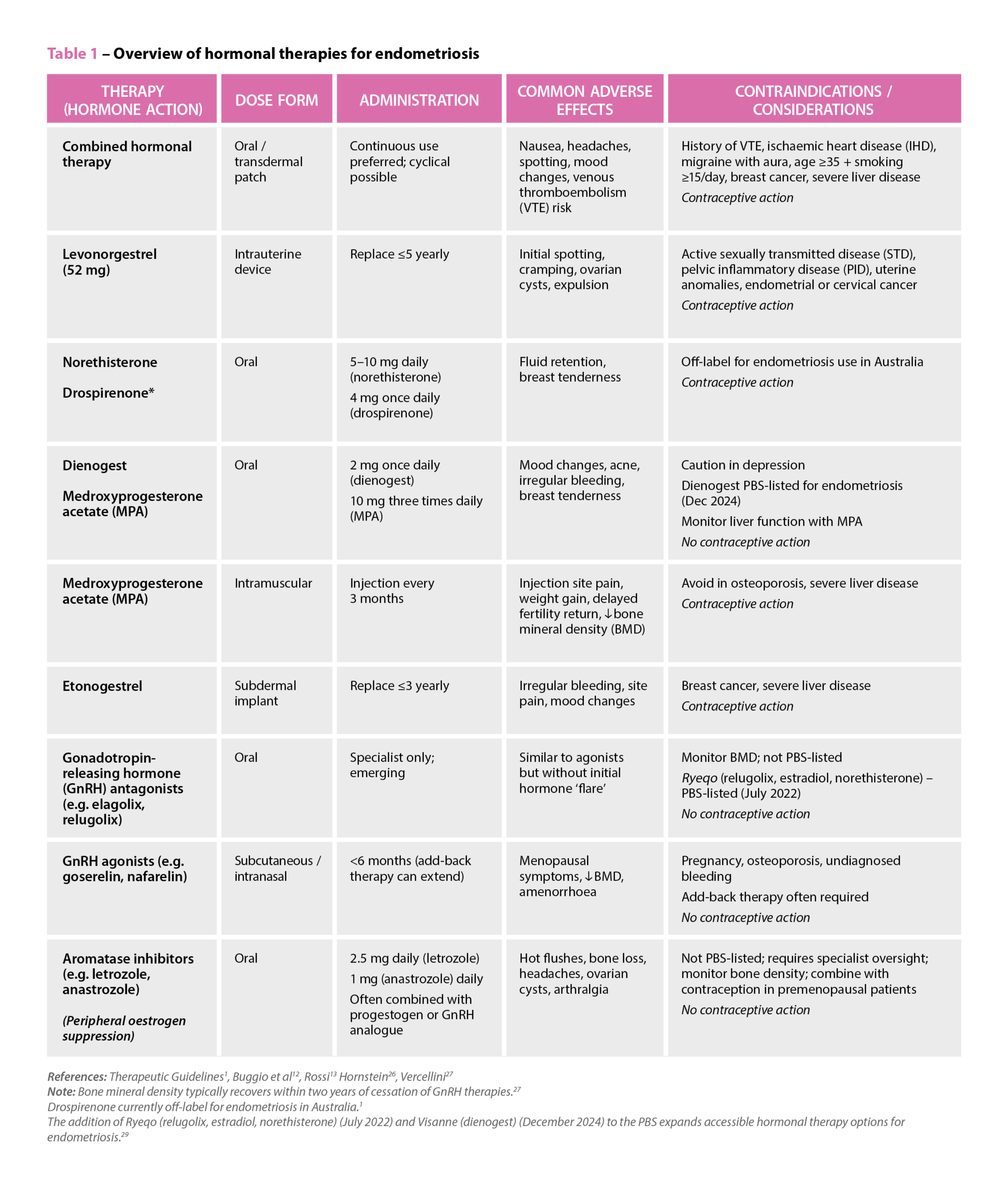 References: Therapeutic Guidelines
References: Therapeutic Guidelines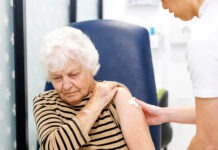

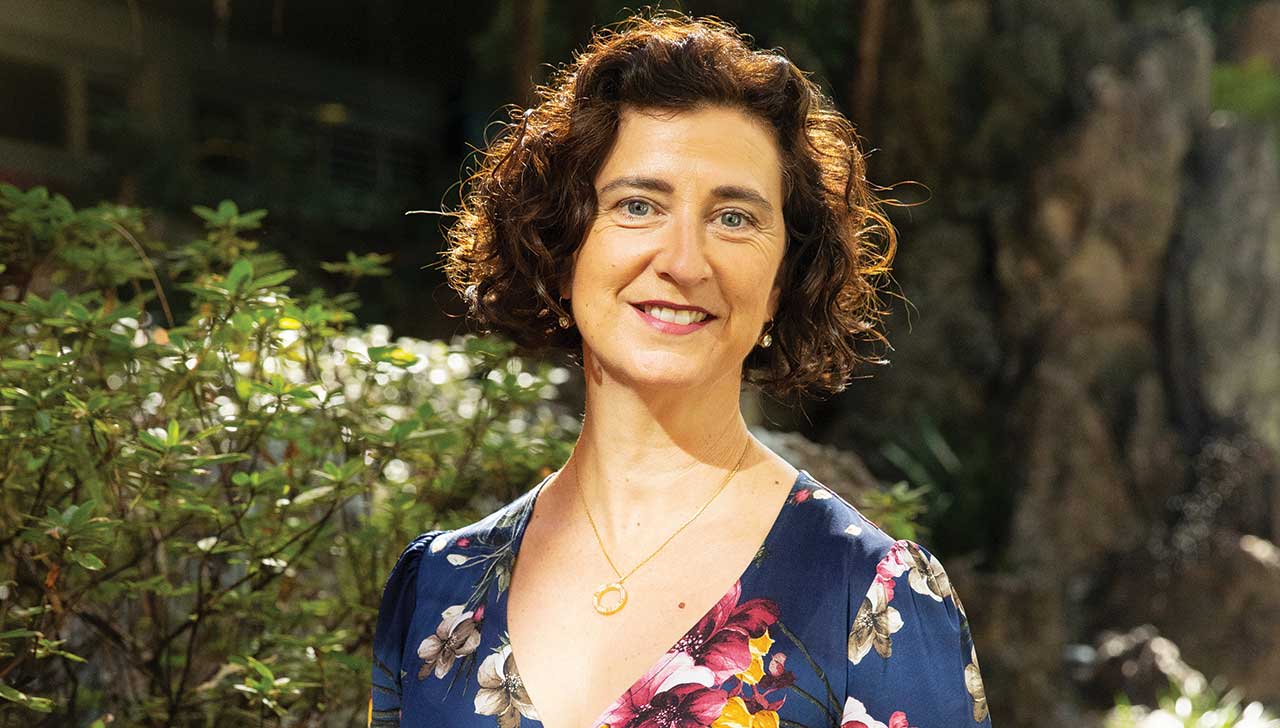 Genevieve Adamo MPS (Image: Steve Christo Photography)[/caption]
Genevieve Adamo MPS (Image: Steve Christo Photography)[/caption]


